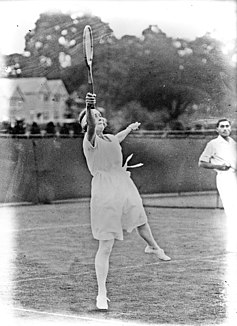This page is based on this
Wikipedia article Text is available under the
CC BY-SA 4.0 license; additional terms may apply.
Images, videos and audio are available under their respective licenses.

Clark is an English language surname, ultimately derived from the Latin clericus meaning "scribe", "secretary" or a scholar within a religious order, referring to someone who was educated. Clark evolved from "clerk". First records of the name are found in 12th-century England. The name has many variants.
James Martin or Jim Martin may refer to:
Robert, Bob, Rob or Bobby Wright may refer to:
White is a surname either of English or of Scottish and Irish origin, the latter being an anglicisation of the Scottish Gaelic MacGillebhàin, "Son of the fair gillie" and the Irish "Mac Faoitigh" or "de Faoite". It is the seventeenth most common surname in England. In the 1990 United States Census, "White" ranked fourteenth among all reported surnames in frequency, accounting for 0.28% of the population. By 2000, White had fallen to position 20 in the United States and 22nd position by 2014
Mott is both an English and German surname, and a given name. Notable people with the name include:
William James (1842–1910) was a pioneering American psychologist and philosopher.
Watkins is an English and Welsh surname derived as a patronymic from Watkin, in turn a diminutive of the name Watt, a popular Middle English given name itself derived as a pet form of the name Walter.
Todd is a surname meaning "fox", and may refer to:
The surname Foster derives from the ancient title and office bestowed upon those overseeing the upkeep and administration of hunting territories belonging to either the monarch, or bishop. The title begins to be adopted as a surname, in the historical record, from the 12th and 13th centuries onwards.
Mason is an Italian, French, Irish or English surname that refers to someone who did stonemasonry work, or it derives from the given name "Maso", which is the short form of the personal name "Tommaso". The name "Tommaso", or "Thomas", is itself derived from the Aramiac toma ("twin").
James is a common surname with many origins. Notable people with the surname include:
James, Jim, or Jimmy Green may refer to:
Herbert is a surname, derived from the given name Herbert and may refer to:
Reade is a surname of English origin, and may refer to:
Graham is an English and Scottish surname. It is a habitational name, derived from Grantham in Lincolnshire, England. The Scottish Grahams traditionally claimed descent from a chief called Grame, but the first authentic bearer of the name was William of Graham in the 12th century. Notable people with the surname include:
Hunter is an English and Scottish surname. Notable people with the surname include:
Gross is a surname of German, Prussian, and Yiddish origin. The word means "big", "tall" or "great", and was likely adopted in Europe over the 15th to 19th centuries during the times of the House of Habsburg when monarchs of the royal families were called "the Great". Descendants of this House may have adopted the name Gross from their ancestors. In Germany, the name is usually spelled Groß, which is the correct spelling under German orthographic rules. German-speaking Christian hymns use references to Jesus as "Mein Herr ist Groß" or "So Groß ist der Herr". In Switzerland, the name is spelled Gross. Some Germans and Austrians also use the spelling with "ss" instead of "ß".
Lilian Lindsay, CBE, FSA was a dentist, dental historian, librarian and author who became the first qualified female dentist in Britain and the first female president of the British Dental Association.

